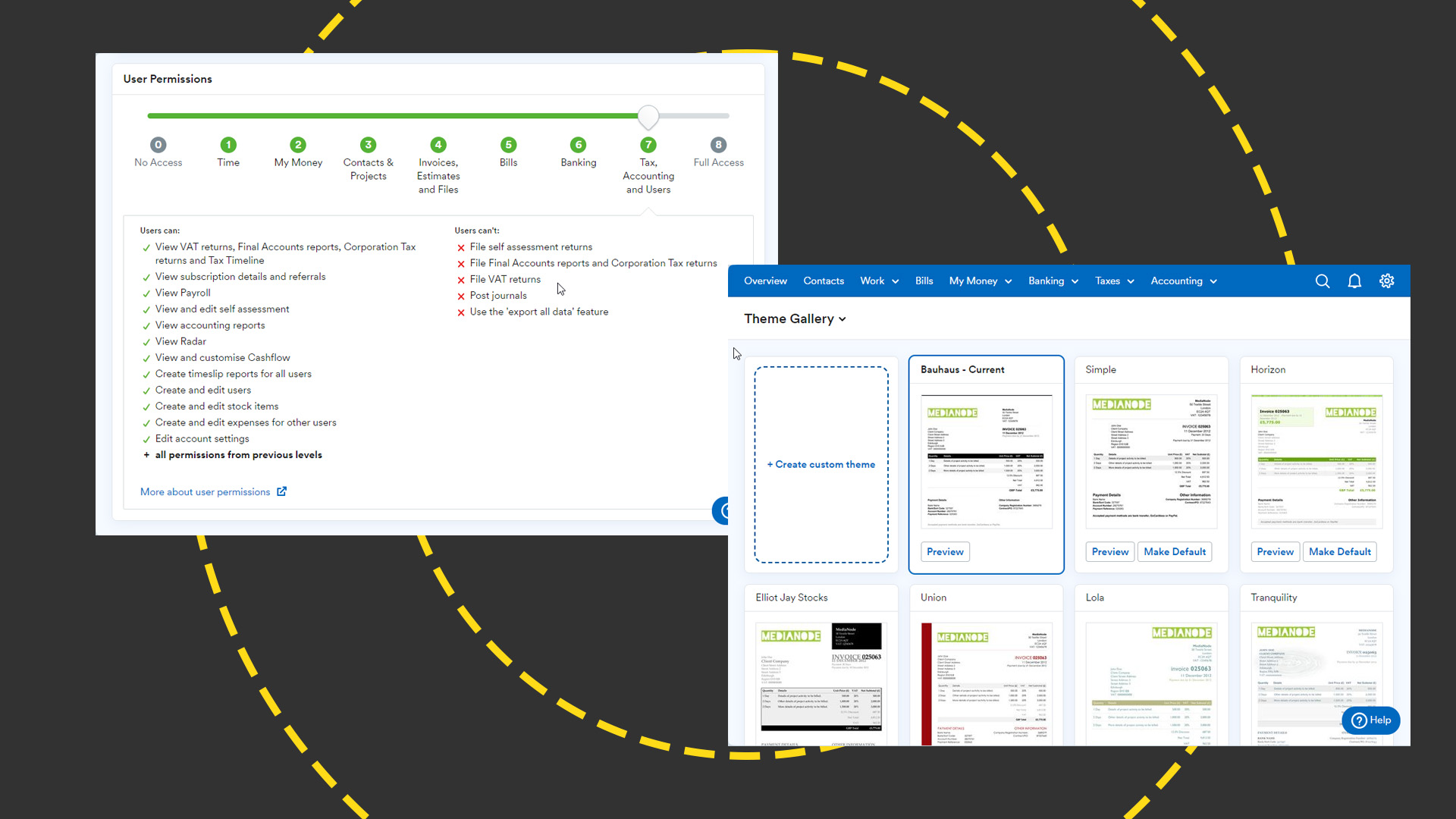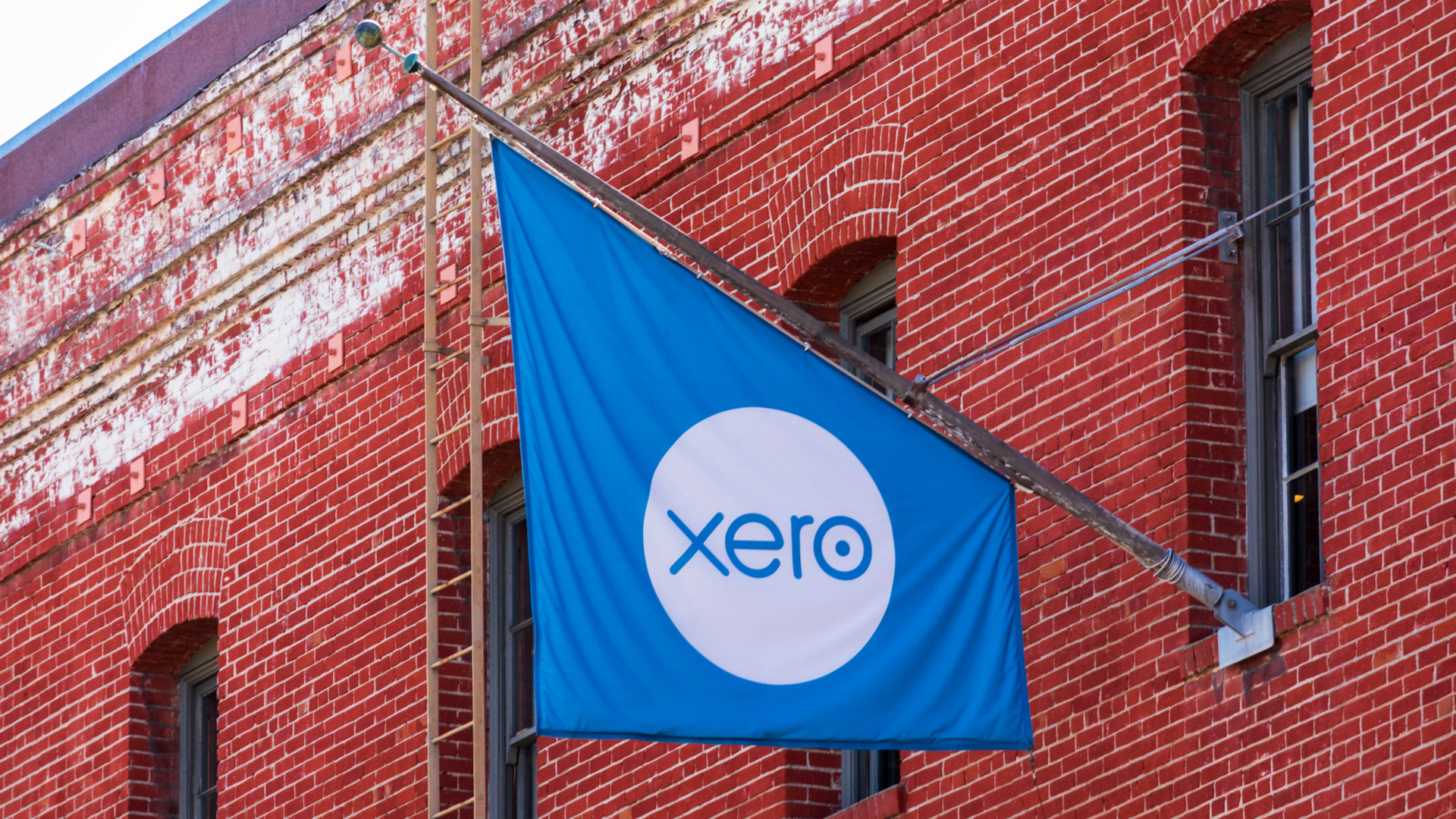KashFlow, FreeAgent or Xero: weighing up accounting options
SMBs are spoiled for choice when it comes to cloud-based packages. Former accountant Dennis Howlett casts his eye over three leaders.

Over the past seven years, I've been watching as first KashFlow, then FreeAgent and finally Xero came to market with solutions aimed at solving the financial headaches experienced by many small businesses. Others have come along but it is clear these three are establishing themselves as leaders, albeit serving different customer needs. They stand in stark contrast to Sage's on-premise and cloud offerings: they are all growing wildly while Sage shrinks.
None of the three are what you would call mega-vendors. The cloud model means that without hundreds of thousands of users, they won't become billion pound businesses any time soon. But in all cases, they have rethought what accounting means in the context of cloud operations and 21st century business needs. That is impacting the professional accounting market. Today, I see more and more practices recognising that real-time shared access to financial data has a positive impact on their ability to provide better services. Just what's needed in a recessionary economy. All three vendors have active and enthusiastic user communities and enjoy impressively low churn rates. Here's my take on each going in chronological order.
KashFlow - is led by Duane Jackson who makes no bones about where he sees the main market competition. Almost from the get go, Jackson has consistently tried to annoy Sage, often successfully, with witty campaigns that point to Sage weaknesses. Possibly his best effort came when Sage attempted to launch a cloud offering in the UK in 2009 that was fundamentally insecure. That product was quickly killed off. Today, much of Jackson's attention is still on Sage but now he's growing a company that needs adult supervision. To that end, KashFlow has hired a senior industry person (as yet unannounced) to take on day to day operations. I'm also told that Jackson has sold a part of his majority holding for a 'seven figure sum' but still maintains control.
KashFlow offers a broad accounting system that appeals to many types of small business user and especially those that only need something relatively simple. You could describe it as 'book-keeping plus.' KashFlow pitches itself as being very easy to use and customers I have spoken with say they love it. Practitioners are equally happy. KashFlow has many points of automation. For instance you can set it up to automate billing. Useful if you send an invoice for the same amount each month. KashFlow also understands the type of inbound invoices you receive so that it can auto allocate to the correct general ledger account code. Unusually, KashFlow allows users to create custom fields for billing. An example might be 'purchase order number.' And of course you can bill in any currency you like. The currency conversions are taken care of automatically.
Very early in its existence, KashFlow made the decision to present developers with open APIs. At one time I was sceptical about some aspects of this from a security standpoint. My position has softened, largely because we've not heard about any data breaches. What's more, KashFlow has expended a lot of effort refactoring to build out multi-user permissions that will allow customers to control access to the system. The implications are that in the long term, KashFlow customers will be able to give permissions to both customers and suppliers. That's a very good thing.
On APIs, KashFlow has a large set of integrations and add-ons. The list is extensive including payroll and payment processors - key requirements for any business. The company is also re-engineering its codeline to be more easily adapted for mobile operations. Again, this is a good thing because it should mean the company can devote more resources to feature build out rather than code maintenance. One thing that is lacking for which KashFlow says it will have an answer: automated bank feeds. These provide an easy way for users to get their bank data into the system quickly and accurately. KashFlow offers simple pricing: £17.99 a month.
FreeAgent - is led by former fighter pilot and code geek Ed Molyneux with two other principals, Roan Lavery (designer) and Olly Headey (enterprise geek.) Unlike KashFlow which is wholly self funded, FreeAgent has taken several rounds of private funding, including what was a 17 percent stake by IRIS, the professional accounting solution provider. That has also allowed it a fresh route to market. A recent deal involved an IRIS practice onboarding 1,200 of its clients. From what I hear, all three routes to market: IRIS, Barclays MWB and direct are firing on all cylinders. While the company is not releasing figures, my understanding is that their growth over the last couple of years has hockeysticked. Earlier this year, FreeAgent acquired a vendor in the US as a way of establishing a beach head in that country.
Get the ITPro daily newsletter
Sign up today and you will receive a free copy of our Future Focus 2025 report - the leading guidance on AI, cybersecurity and other IT challenges as per 700+ senior executives
FreeAgent was established as a response to a common problem: the need to submit spreadsheets to the accountant for later accounts production. FreeAgent concentrates on the freelance services market (web designers, freelance coders and so on) although a partnership with Barclays MWB has seen it expand into other services areas.
From the word go, FreeAgent wanted to solve common problems that these types of business encounter. That means they tend to appeal to a smaller market but one they understand intimately. The main problem the founders saw was that freelancers almost never know what their tax position looks like while at the same time they tend to be project-based. Consequently, FreeAgent delivers a tax estimate rather than a definitive value and project estimates can be turned into invoices, including rechargeable out of pocket expenses. That provides the start of a conversation with accountants who are given permission to access customer accounts. Buttressing that, FreeAgent is being engineered to automate as much of the routine accounts processing tasks as possible while presenting an intuitive interface and experience back to the end user.
FreeAgent is obsessed with good design which permeates everything they do. In recent times that has led to both a UI refresh that was well received by users alongside a refresh in the underlying technology base. As a vendor that is technology led, it has established Geek Fridays where coders get to try out whacky ideas, some of which end up in the production roadmap. This allows for real innovation that only a vendor can bring to the table.
On the roadmap, FreeAgent says it is improving the recently released online invoice payment facility with more gateways including those for the US market. The company will also bring a mobile version to market and is developing what it calls The Stream - a new, and innovative way to interact with important accounts data in a timeline presentation.
While FreeAgent also offers an API, it has a much shorter list of solution partners than KashFlow. It is rolling out automated bank feeds via a Yodlee integration. As you might expect, it has an integration with Barclays Data Services. Where FreeAgent slips behind the others is the lack of true multi-currency. The good news is that back end development for this feature is under way. Other integrations now or on the map include Basecamp, Harvest and multiple payment processors. Pricing is tiered, depending on which solution you need but starts at £15/month when you buy direct.
(DISCLOSURE: While I have no financial holding in FreeAgent, my long-term partner does hold a share in the company)
Xero - is arguably the big dog of the three in the sense that globally, it has over 100,000 paying customers at an annualised run rate of around $NZ 34.5 million That's more than double the number from a year ago. It is much smaller in the UK and in volume is smaller than FreeAgent or KsahFlow. It is also the only one of the three that came to market as a public company with a current market cap of around $NZ 498 million. In the UK, Xero is led by Gary Turner, one of the most seasoned accounting vendor execs I know.
Like KashFlow, Xero started with the simple idea that accounting should be easy and well designed. Today the company describes its product as 'beautiful.' I'm not sure I'd go that far but it is very easy to understand and use and of the three is more 'accounting like' than the others. It therefore appeals to those that want more than KashFlow offers but do not want to be on a more vertical market solution like FreeAgent.
Xero built automated bank feeds in from the start, arguing this would be a significant differentiator. That gave them a five year advantage over competitors in both their home turf and the UK. Today, they have feeds from more than 5,000 banks around the world. That advantage will shrink as the technology needed to do the same is being rolled into other solutions. Functionally, Xero will argue it is ahead of the pack, especially as it has more development resources and baked in multi-currency early on. That is always debatable and dependent upon customer context but there is little doubt Xero makes for an easy Sage/Intuit/MYOB replacement for (mostly) service businesses.
Xero also has a distinctive go to market strategy that tries to bake in distribution via the professional accountant at an early stage. The practitioners I've met who use Xero say it is enabling them to develop entirely new business models. In one case I have seen a tripling of professional revenue in 18 months. This may mean fewer customers in the short term but it protects the enterprise value of those customers while allowing for a robust distribution model.
Xero has made a few acquisitions along the way. These have been designed to improve its ability to service the professional market and so foster an atmosphere that makes it the preferred solution for practitioner clients. This is a smart move because despite customer choice, many SMBs will so as their professional advisors tell them.
Where Xero has outshone the competition is in mobile offerings called Touch. Again this will only be a temporary lead as others play catch up. The trick here is to ensure a great UI exposing the kind of functionality users most need on a small format device. While Xero have concentrated on iPhone, (the latest release included bank view) Android development of Xero Touch is in place. Also coming soon is some beefed up online invoicing but details are sketchy. Elsewhere, Xero is adding US specific functional requirements like cheque printing. (Yes, they still print cheques and it is a core requirement over there.)
As noted elsewhere, Xero offers a significant number of partner add ons spanning the gamut of CRM, payment processors, point of sale, inventory management and many others. Pricing: Tiered and from £12/month.
After spending more than 20 years at the IT coal face across a variety of industries, often in finance-related roles, Dennis Howlett is using that accumulated experience to hold vendors to account for what they deliver to customers. He believes the cloud computing model provides the potential to offer transformational business benefits that have yet to be fully understood or articulated. In early 2011, Howlett celebrated 40 years in and around IT. It was a very small party.
-
 Cleo attack victim list grows as Hertz confirms customer data stolen
Cleo attack victim list grows as Hertz confirms customer data stolenNews Hertz has confirmed it suffered a data breach as a result of the Cleo zero-day vulnerability in late 2024, with the car rental giant warning that customer data was stolen.
By Ross Kelly
-
 Lateral moves in tech: Why leaders should support employee mobility
Lateral moves in tech: Why leaders should support employee mobilityIn-depth Encouraging staff to switch roles can have long-term benefits for skills in the tech sector
By Keri Allan
-
 FreeAgent review: Fully featured yet easy-to-use cloud accounting platform
FreeAgent review: Fully featured yet easy-to-use cloud accounting platformReviews A keenly-priced timesaver that will shine if your business lacks an accounts department
By Nik Rawlinson
-
 Why it might be time to switch your organization’s accounting software
Why it might be time to switch your organization’s accounting softwareIn-depth Every business needs to keep track of its finance, but there are challenges involved in maintaining and switching accounting software
By Steve Cassidy
-
 Intuit to pay $141 million settlement over misleading TurboTax ads
Intuit to pay $141 million settlement over misleading TurboTax adsNews The company's elusive ad campaign discouraged eligible taxpayers from signing up for IRS Free File Program
By Praharsha Anand
-
 Google settles tax payment in Ireland
Google settles tax payment in IrelandNews Company makes settlement for back tax and interest payments
By Danny Bradbury
-
 UK fintech investment reaches record levels
UK fintech investment reaches record levelsNews Out of the 112 tech unicorns in the UK, 40 are part of the fintech sector
By Sabina Weston
-
 Oracle employee claims company wasn't accounting properly
Oracle employee claims company wasn't accounting properlyNews The whistleblower has now been sacked after saying it falsified cloud figures and faces legal action
By Clare Hopping
-
 Sage One Accounts Extra review
Sage One Accounts Extra reviewReviews One of the best small business accounting services around, despite limited VAT MOSS support
By K.G. Orphanides
-
 Xero Premium review
Xero Premium reviewReviews Powerful small business accounting in the cloud
By K.G. Orphanides